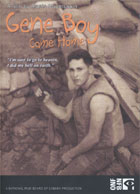
Gene Boy Came Home 2007
Distributed by National Film Board of Canada, 1123 Broadway, Suite 307, New York, NY 10010; 800-542-2164
Produced by Alanis Obomsawin
Directed by Alanis Obomsawin
DVD, color and b&w, 24 min.
Jr. High - Adult
Canadian Studies, Native American Studies
Date Entered: 02/07/2008
Reviewed by Cliff Glaviano, Coordinator of Cataloging, Bowling Green State University Libraries, Bowling Green, OHEugene “Gene Boy” Benedict, a Wabanaki Indian, grew up on the Odanak Indian Reserve east of Montreal. He was raised by his great uncle and aunt so that his mother could avoid being ostracized for giving birth out of wedlock. As he grew up in the 1950s, the family spoke English, French, and Abenaki in the home. At age 15 he left the reservation to work construction in New York State, where, on a dare, he enlisted in the U.S. Marines at age 17. Gene Boy served nearly 2 years in the Vietnam as a scout/sniper, experiencing combat and exposure to Agent Orange. When he returned to the U.S., he felt stigmatized by his service and never mentioned to his bosses that he was a veteran. Gene Boy was often in trouble, reacting against authority and his employers. He considered suicide in the Albany, NY area. He wanted to, “… blow my brains out or find some way, some reason to keep on living.” He returned to Odanak by bus from Albany to Montreal, and by hitchhiking from Montreal to the reservation.
Gene Boy’s story is chiefly told through interviews filmed in 2006. The interview footage is edited with still photo images, stock footage of the Vietnam conflict, and stunning soft images of areas on the Odanak Reserve on a misty, early fall morning. The interview sequences in this documentary allow Gene Boy to describe how he felt “at home” when he arrived in Odanak, and how he resolved to pay back the Reserve for his sense of peace by driving school bus and interacting with the children that he would transport to school for up to 7 years each. Though he suffered from post traumatic stress disorder, had flashbacks to his Marine combat service, and took medication to alleviate a nervous condition, Gene Boy wanted to pay for the help he received from his reservation family by talking with the children and showing them some of the old ways of the Wabanakis.
This view of one of the few good aspects of reservation life is recommended to audiences from junior high age through adults. Though he returned to his people as “damaged goods” from his war experiences in Vietnam, Gene Boy was accepted and eventually became a respected contributor to his tribe. Benedict was able to overcome the continuing trauma of war through the help of his extended family. The message that we are not alone, no matter how hopeless the situation looks, is one that should resonate with all viewers of this film. Some may be reminded to look to their families, their roots for support. Others may be reminded to offer help to those in need without offering criticism or judgment.